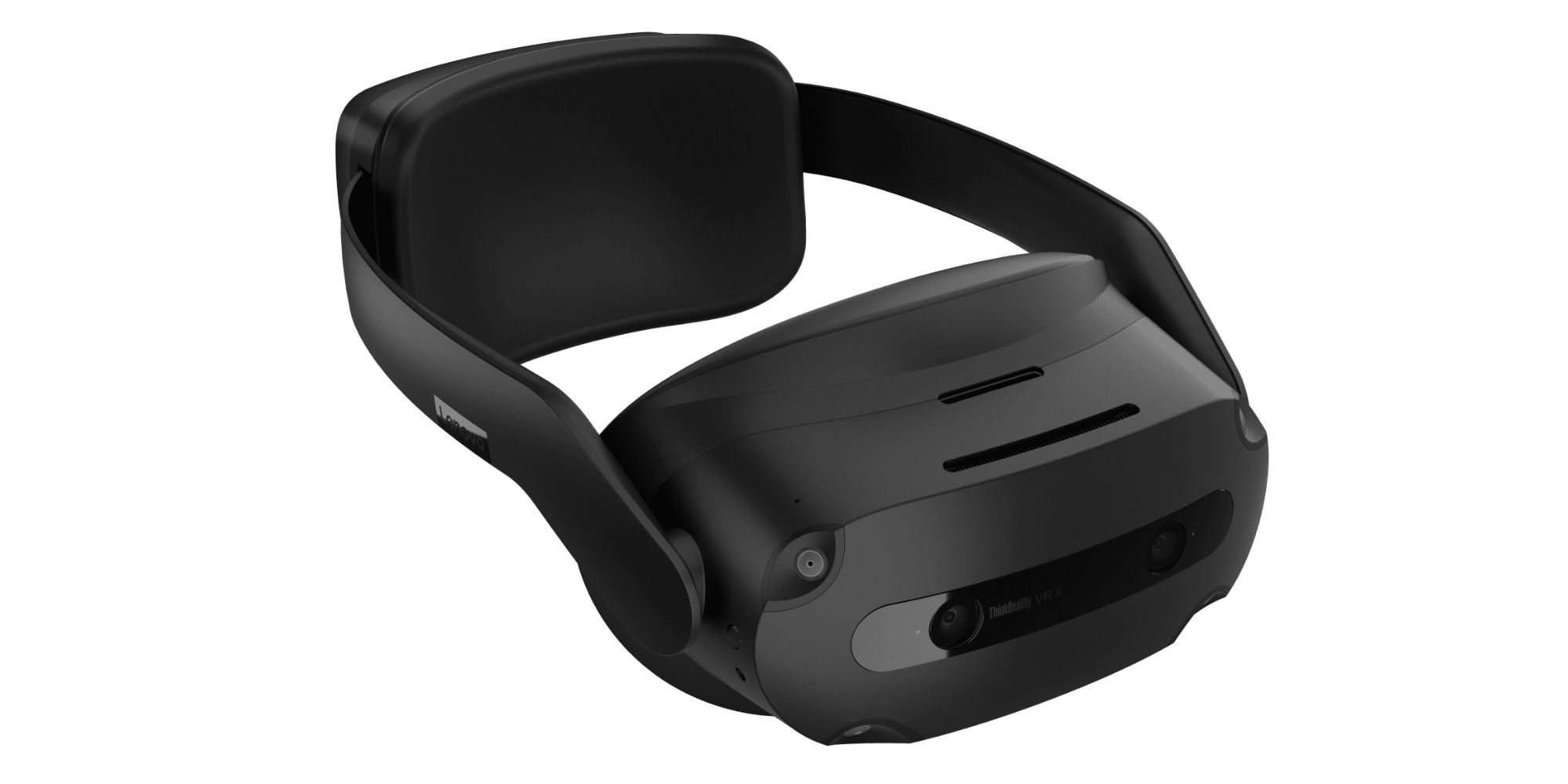Lenovo has released the ThinkReality VRX virtual reality headset with hopes of targeting the business market. With large corporations such as Walmart getting into the metaverse, the AR and VR market has become appealing to businesses in various industries. As AR and VR become more mainstream, many companies are exploring ways to integrate the technology into their marketing strategies and products.
Consumer-level AR and VR headsets have steadily been rolling out with more impressive features and relatively lower price points. Supplemental products such as haptic gloves and full-body VR suits are being developed to expand the ways consumers can engage with the metaverse. Since the technology is still in the early stages, some hardware is too expensive to market to the average user.
Lenovo's new ThinkReality VRX is an all-in-one VR headset and prototyping tool marketed to large and growing businesses. Unlike Lenovo's Meta Quest 2 rival Legion VR700, the ThinkReality VRX offers premium features for high-end clients. The headset features a pancake lens for optics and four front-mounted cameras for 6DoF tracking. It also features two color pass-through cameras and is powered by Qualcomm's Snapdragon XR platform. In addition to the impressive VR screen and AR pass-through capabilities, the VRX is also supported by cloud software and security features for enterprise clientele. Limited access to the headset will begin by the end of 2022, with worldwide availability rolling out in early 2023. Pricing will be revealed closer to the release date.
Is The Corporate World Ready For The Metaverse?
There may be a market for premium VR headsets in corporate markets. With many users stepping into the metaverse for the first time, it may not be necessary for everyone to opt for pricier devices. But expensive technology is a byproduct of rapid advancement, and enterprise markets may be the solution to sustaining the continued development of premium devices with higher prices.
With several VR and AR devices and products becoming available to businesses and consumers, the metaverse is being established as a promising market for investors. As consumer-level products become accessible, businesses have more incentive to create engaging virtual products. As a result, companies have been finding new ways to make the metaverse more immersive for users. Whether or not corporations will need their own line of advanced VR headsets, many businesses will likely be investing in the metaverse. Each industry will have to navigate its place in this new market and discover the best ways to entice potential customers with the latest virtual reality integrations.
Source: Lenovo


